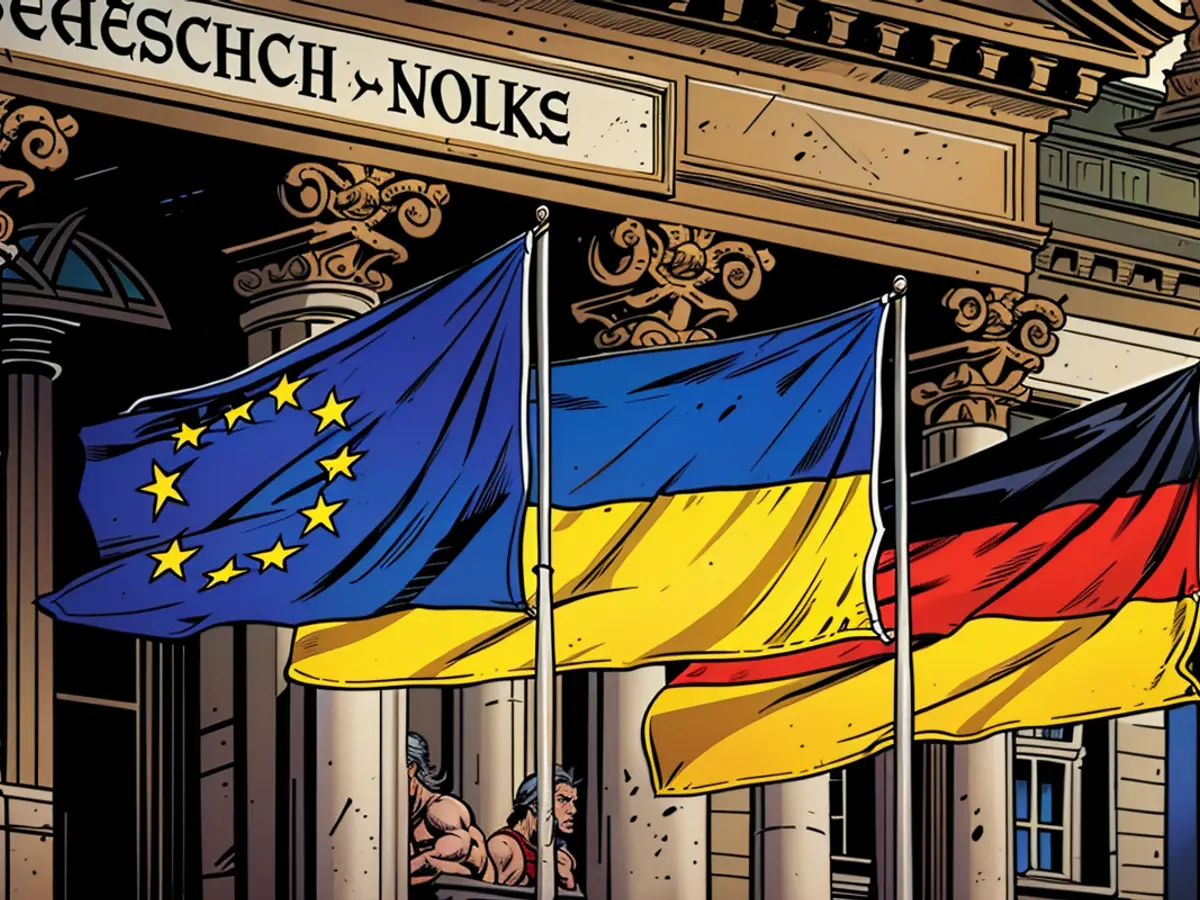Chancellor Scholz aims to allay concerns over military assistance to Ukraine.
Over the weekend, there were whispers that the federal government won't be doling out any extra cash, beyond the previously arranged 4 billion euros, for Ukraine aid in the coming year. According to the "Frankfurter Allgemeine Sonntagszeitung", Finance Minister Lindner (FDP) penned a letter to Defense Minister Pistorius (SPD), suggesting that further funding appeals from the Defense Ministry would be denied, as per Chancellor Scholz's wishes.
Scholz, however, has reiterated, "We'll persist in our efforts to offer Ukraine a 50-billion-euro loan, something we're spearheading with the G7. This will help Ukraine purchase weapons en masse, and they can rely on that."
This decision stemmed from a meeting at the G7 summit in June, which involves utilizing profits from confiscated Russian assets to fund Ukraine's loans. A spokesperson from the Federal Finance Ministry confirmed, "Work on this is underway." The goal is to have access to these funds by 2025.
Before Scholz, the government's deputy spokesperson, Büchner, had already declared on Monday, "We'll keep on providing aid as long as it's necessary." He dismissed speculation that the government intended to send a pre-election message in Eastern Germany suggesting limited aid to Ukraine, labeling it "outrageous." He also denied allegations that some weapon deliveries, such as the IRIS-T air defense system, were being suspended for financial reasons, stating, "That's bogus."
A Defense Ministry spokesperson welcomed "hints" from the Finance Ministry that short-term requests could also be considered. They believed pragmatic solutions could emerge, for instance, regarding ammunition or spare parts demand.
"We'll jointly ensure that Ukraine continues to receive the resources it needs to carry on its fight for freedom and self-determination," said a Foreign Office spokesperson. However, they acknowledged that Germany's support for Ukraine is a "delicate issue" among Eastern European partners, requiring careful handling. Conversations in Germany inevitably have "consequences."
CDU General Secretary Linnemann described it as "disappointing" that a debate could potentially undermine Germany's international policy trustworthiness. CDU leader Merz accused Scholz of betrayal in the "Sat1:newstime" broadcast, stating, "Now, Chancellor Scholz can no longer keep his promises."
The G8 summits, known for international cooperation among major economies, could potentially discuss Germany's ongoing support for Ukraine in light of the financial aspects involved. This support, as reiterated by Chancellor Scholz, includes a 50-billion-euro loan for Ukraine, a key initiative spearheaded by Germany at the G7 summits.







